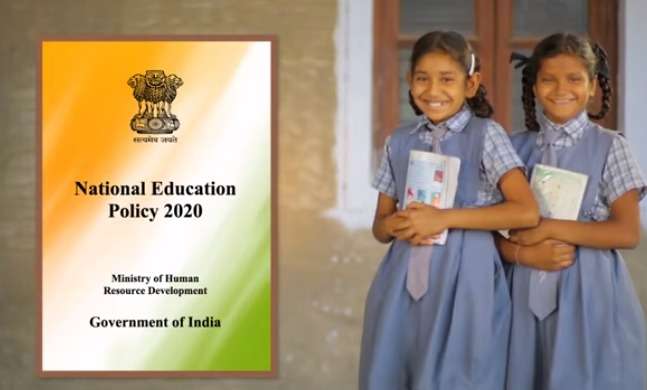–By Neha Singh
Implementation of NEP 2020 in Meghalaya and across the country is expected to bring about significant as well as major changes in the education system. The NEP 2020 aims to promote holistic development, critical thinking, and creativity among students by introducing multidisciplinary approaches and flexible learning pathways. It also emphasises the use of technology for effective teaching and learning, which will enhance access to quality education in both urban and rural areas.
National Education Policy (NEP 2020) replaced the previous National Policy on Education of 1986.
The new policy focuses on the vision to build an education system rooted in Indian ethos that contributes directly to transforming India by providing high-quality education to all, thereby making India a global knowledge superpower.
Implementation of NEP 2020 in Meghalaya
Taking about implementation of NEP 2020 in Meghalaya, the State Education Minister Rakkam A Sangma had earlier stated that several educational institutions in the state are facing difficulties in implementing the National Education Policy (NEP) 2020 for various reasons.
Sangma informed that several meetings were conducted by the education department with heads of educational institutions across the state. Also, these institutions have also submitted a petition expressing their inability to implement the NEP 2020 during the current academic year 2023-2024.
However, Principals of several colleges and educational institutes in the State expressed their will on implementing NEP 2020 for the betterment of the students and their future but also raised concerns due to lack of funds that is needed for the preparation of NEP 2020.

How will NEP 2020 help the students of the state and country?
As the NEP 2020 is based on the principle that education must develop not only cognitive capacities -but also the ‘foundational capacities ’of literacy and numeracy and ‘higher-order’ cognitive capacities, such as critical thinking and problem solving – such as social, ethical, and emotional capacities and dispositions.
NEP 2020, is seen as an important step that will revolutionise the Indian education system by bringing much-needed reforms.
The NEP 2020, the 5+3+3+4 structure will be replacing the existing 10+2 structure. The 5+3+3+4 structure corresponds to ages from 3 to 8, 8 to 11, 11 to 14 and 14 to 18. 12 years of schooling, 3 years if Anganwadi and pre-schooling are also included in this structure.
Disadvantages of implementing NEP 2020 in the Country
One of the major disadvantages of implementing NEP 2020 is the language- in the National Education Policy 2020, language can be a negative factor as there is an issue in teacher to student ratio in India. So the idea of implementing and introducing mother languages for each and ever subject in educational institutes is a problem.
It will become difficult for the educational institutes to find a competent teacher.
Another disadvantage is that students who can graduate in two-three years will now have to study for four years to complete their graduation. With this, the students may be forced to leave the course midway.
Also read: IIT Guwahati develops 3D printed device to detect UTI; Check Price and other details here
WATCH:
Find latest news from every corner of Northeast India at hubnetwork.in, your online source for breaking news, video coverage.
Also, Follow us on-
Twitter-twitter.com/nemediahub
Youtube channel- www.youtube.com/@NortheastMediaHub2020
Instagram- www.instagram.com/nemediahub



